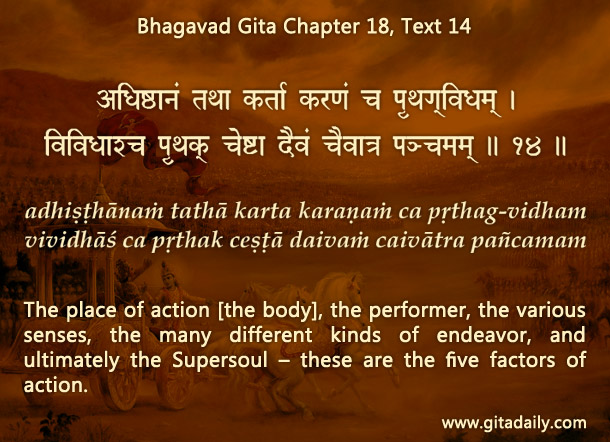We do things all the time, yet we don’t often think of the various factors that go into things working out well. The Bhagavad-gita (18.14) breaks down action into its various components: the field of action, the doer, the instruments of action, endeavor and destiny.
Let’s consider how these factors apply to, say, a cricketer batting. The field of action can refer to both the cricket pitch and the batsman’s body. If the pitch is waterlogged or the body is injured, the batsman can’t perform. The doer refers to the player’s soul that animates his body and initiates the action of batting. The instruments of action refer to the specific senses required for that particular action. So, for example, if the batsman’s hand is sprained, he can’t bat, even if the rest of his body is ok. The endeavor refers to the difference made by determined, diligent practice; it can enable an average batsman to perform decently and a talented batsman to perform superlatively. The fifth and final factor is destiny – the sanction of the controllers of the senses, the gods, who work ultimately under the supreme controller Krishna. Without that sanction, the batsman will just not be able to perform, being inexplicably out of form.
Among these factors, our role is undoubtedly important – as desirers, we initiate the action. Still, we don’t determine success; our role is thus contributive, not decisive.
The Gita doesn’t go into the technicalities of these factors, but stresses the best course of action: Work for pleasing Krishna without obsessing over results. Such a mood protects us from both the hubris that often accompanies success and the inferiority complex that often accompanies failure. By working in a devotional mood, we can make our best contribution and, more importantly, attain satisfaction, purification and ultimately liberation.
To know more about this verse, please click on the image
Explanation of article:
Podcast:


shubha Deepavali, Pranaam.
Thanks prabhu. Very relevant to me.